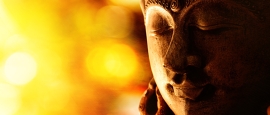Bitesized guide: Celestial spectacles
Whether you want to gawp at a solar eclipse in the Maldives, stargaze in Scotland or enjoy a meteor shower in Jordan, we cast our eyes skywards for a guide to the planet’s best celestial wonders.
Solar eclipse: Maldives
The first solar eclipse of 2010, in which the moon passes between the earth and the sun, takes place on 15 January. The longest of its kind for another 1,000 years, it will be visible across a 300km (186-mile) wide track sweeping across Africa, the Indian Ocean and Asia. Elegant Resorts is offering a special solar eclipse package at boutique property Soneva Fushi by Six Senses in Kunfunadoo, the Maldives. Guests will be able to toast the solar eclipse with a glass of champagne as they enjoy the 10-minute long spectacle starting at 1330 from the beach, followed by lunch, a spa treatment and dinner.
Meteor shower: Jordan
The Perseids meteor shower festoons the clear, night sky of Jordan's Wadi Rum desert every year, and has enthralled observors for the last 2,000 years. With 60 meteors an hour expected to rain down around 11 and 12 August 2010, this thrilling spectacle amid ancient riverbeds and bizarre shaped desert rock formations will leave you gasping in delight.
Electrical storm: Venezuela
Reignite your spirit of adventure with a trip to Venezuela's Lake Maracaibo in the northeast of the country. At 13,209 sq km (5,100 sq miles), it's the continent's largest lake and a rich habitat for birdlife and freshwater dolphins. Thanks to its ring of high mountains, the lake is also the stage for a jaw-dropping natural light show of sheet and bolt lightening that occurs almost without fail every night. Book yourself a hammock in a hut on the lake, and watch as this silent, eerie, electrical storm, sometimes lasting up to 10 hours, arcs and flashes through the inky blackness. This weird and wonderful phenomenon occurs nowhere else on the planet, making this a truly unique experience.
Northern Lights: Arctic
Goggling at the sight of rippling curtains of red, green, blue, violet and pink light streaking across a night sky has to count as one of the earth's most ethereal sights. Granted, you have to travel to the bone-chilling, polar expanses of northern Canada, Greenland, Iceland and Norway to clap eyes on the Aurora Borealis but you'll soon forget the nip in the air as you gaze heavenwards. Caused by magnetic disturbances in the earth's atmosphere, the Northern Lights are best seen between now and early spring.
Stargazing: Scotland
A pocket of conifer forests and hills in southwest Scotland was declared one of the world's best places to stargaze last month. Unfettered by clouds and street lights, the tar-like darkness shrouding Galloway Forest Park has earned it “dark sky” park status by astronomers, the first place in the UK to be bestowed with the title. Easily accessible from Edinburgh and Glasgow, visitors who journey to this unspoilt destination can admire a twinkling canopy of 7,000 stars, the Milky Water and Jupiter in all their glory. Weather permitting, of course.
Do you have any Feedback about this page?
© 2026 Columbus Travel Media Ltd. All rights reserved. No part of this site may be reproduced without our written permission, click here for information on Columbus Content Solutions.









 You know where
You know where